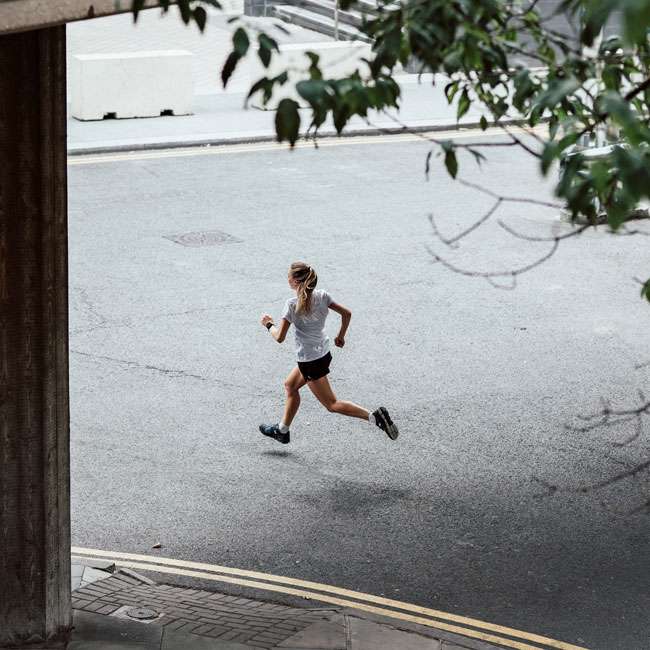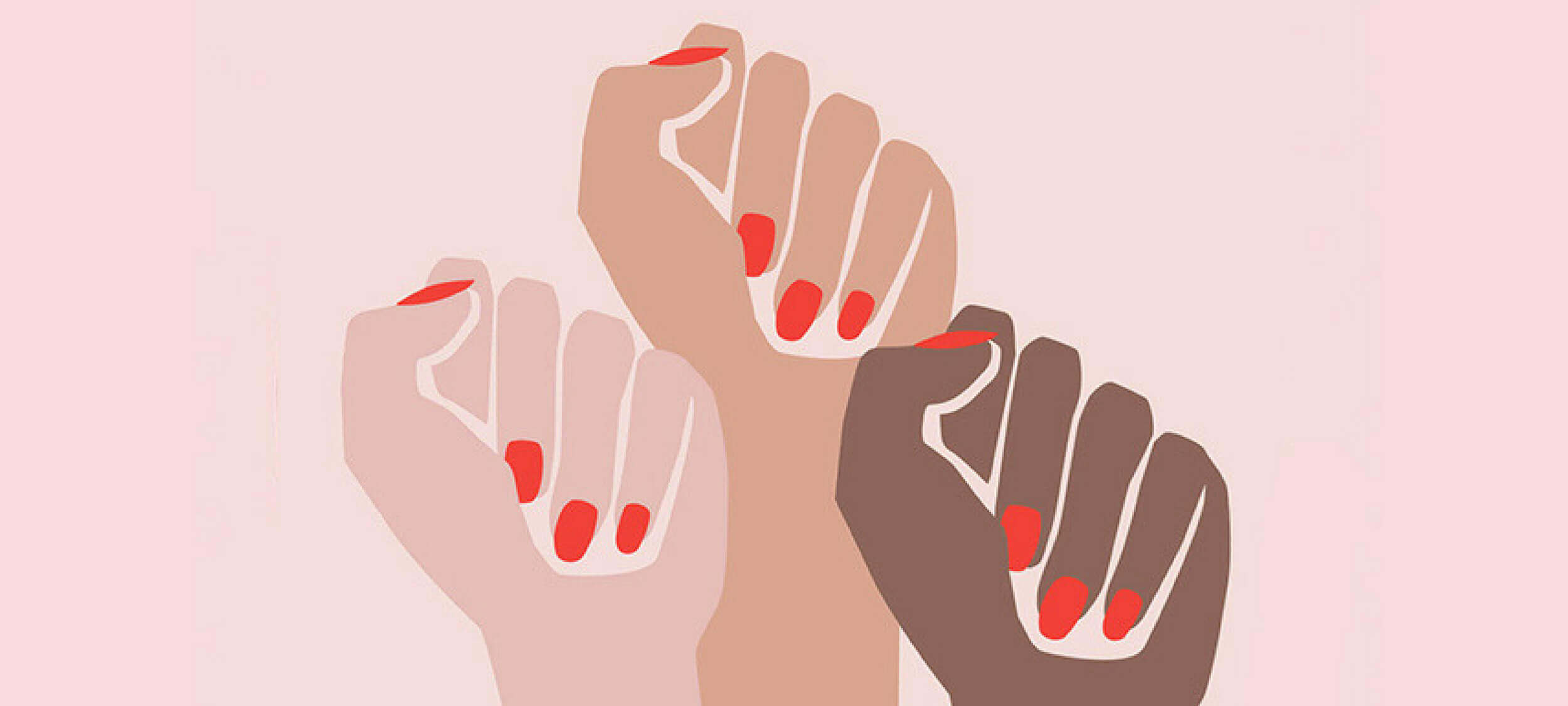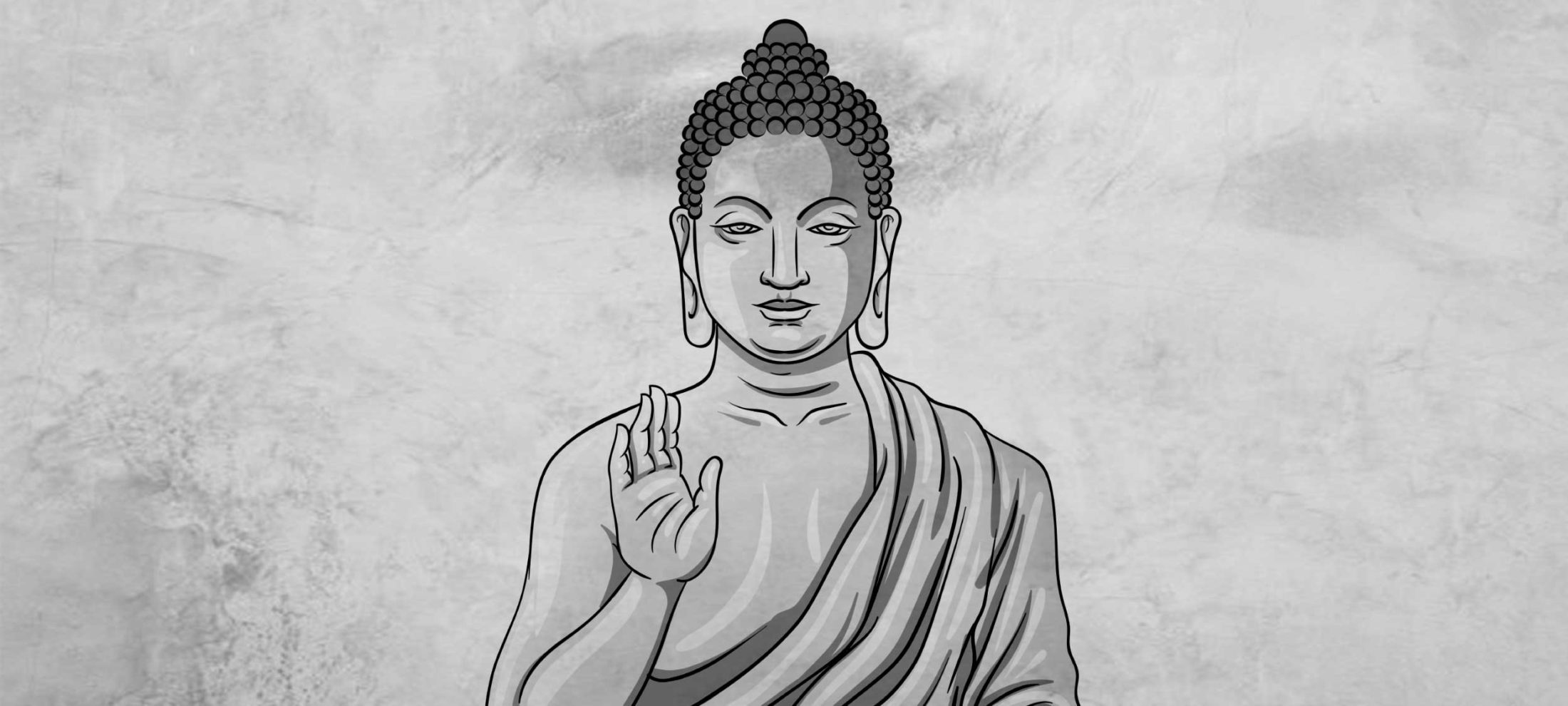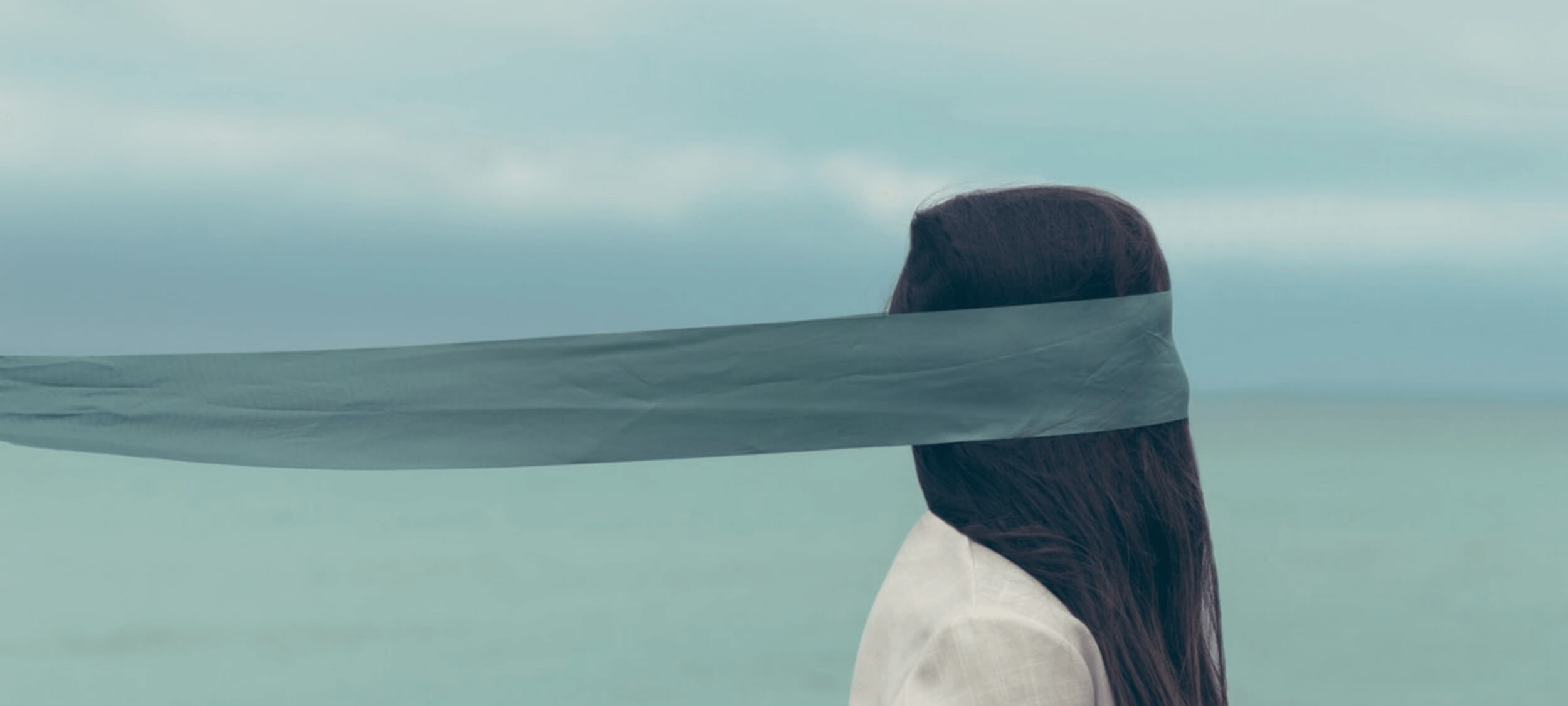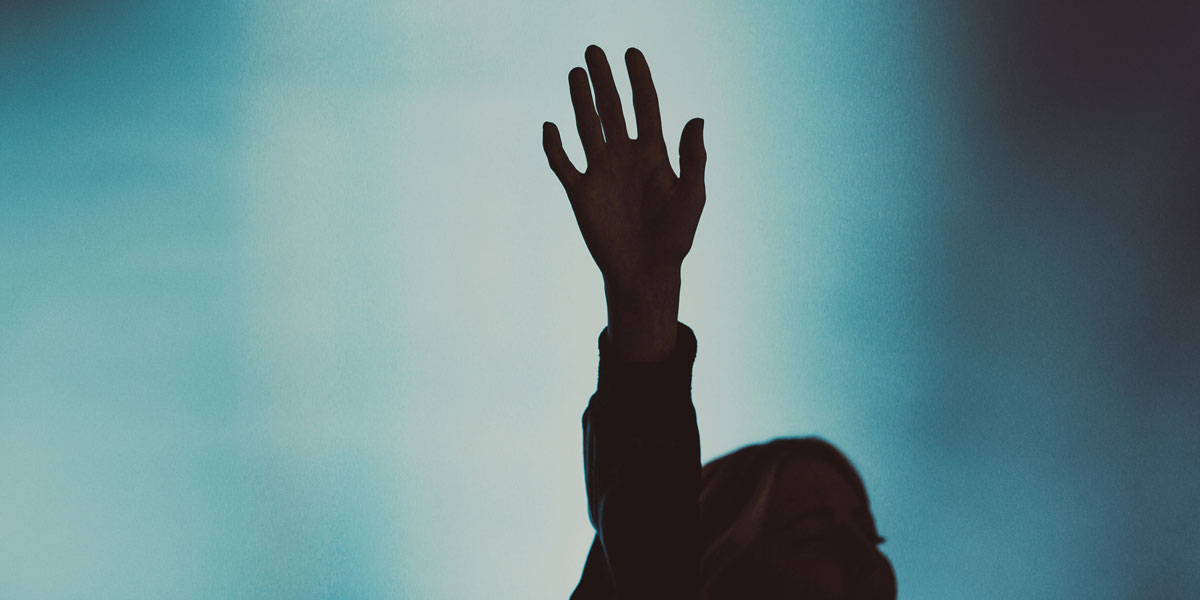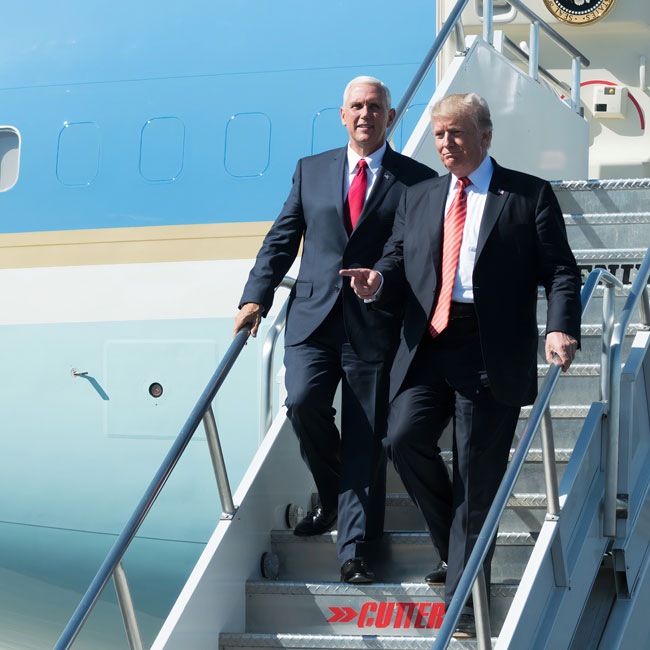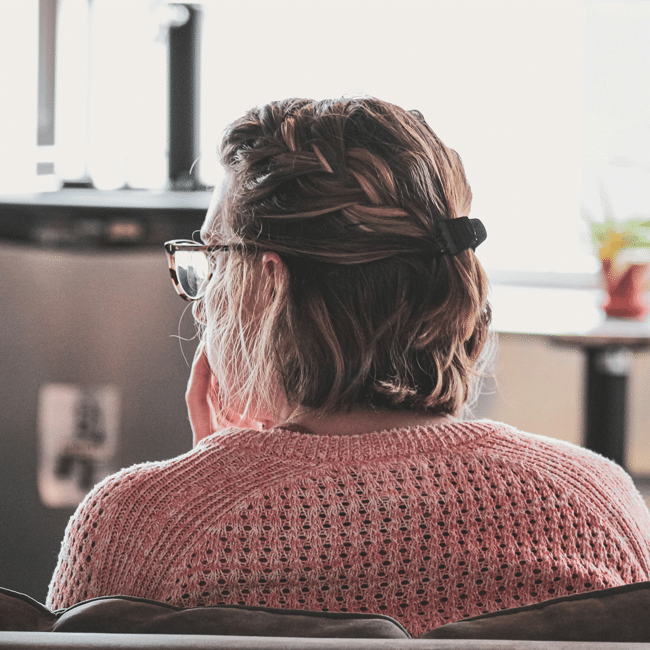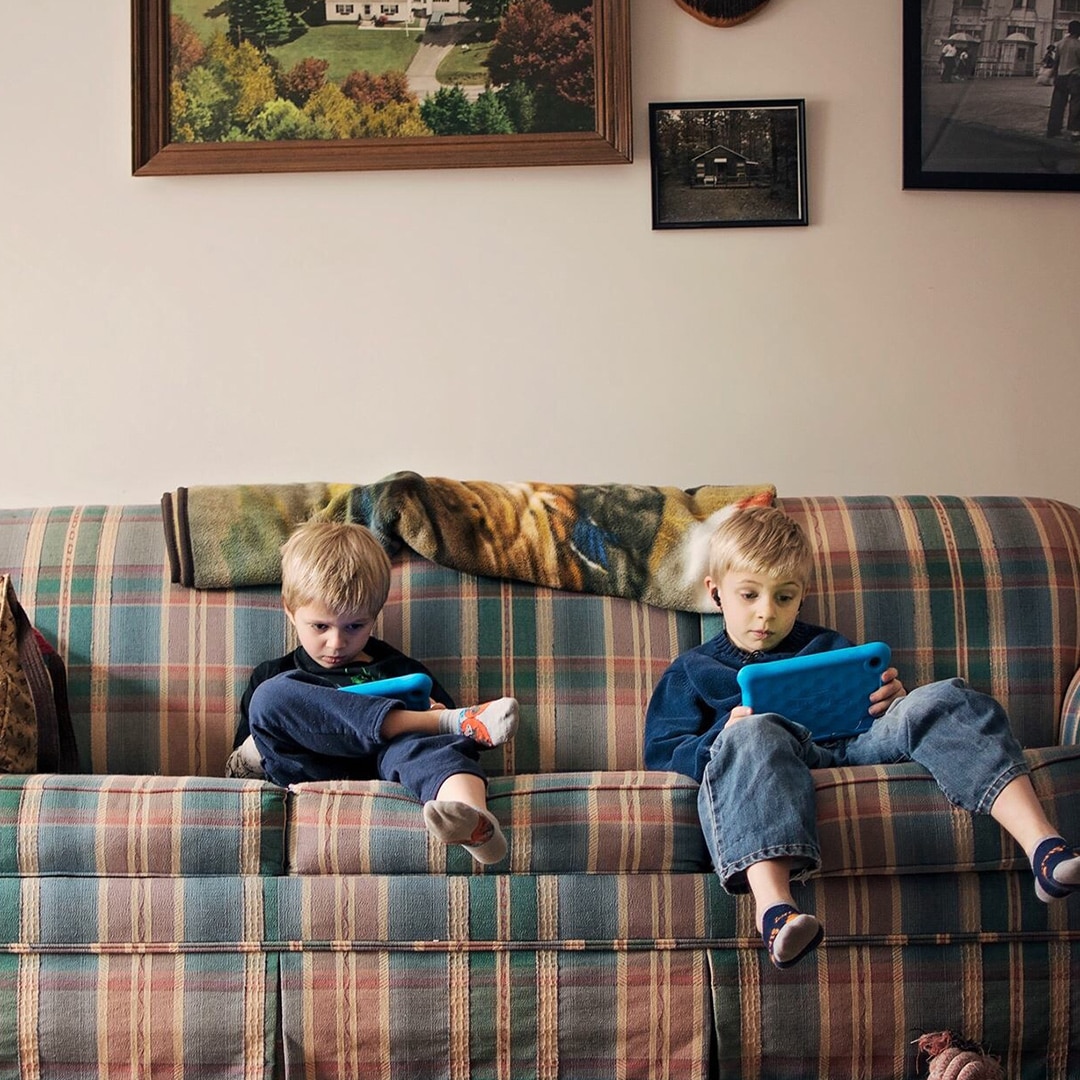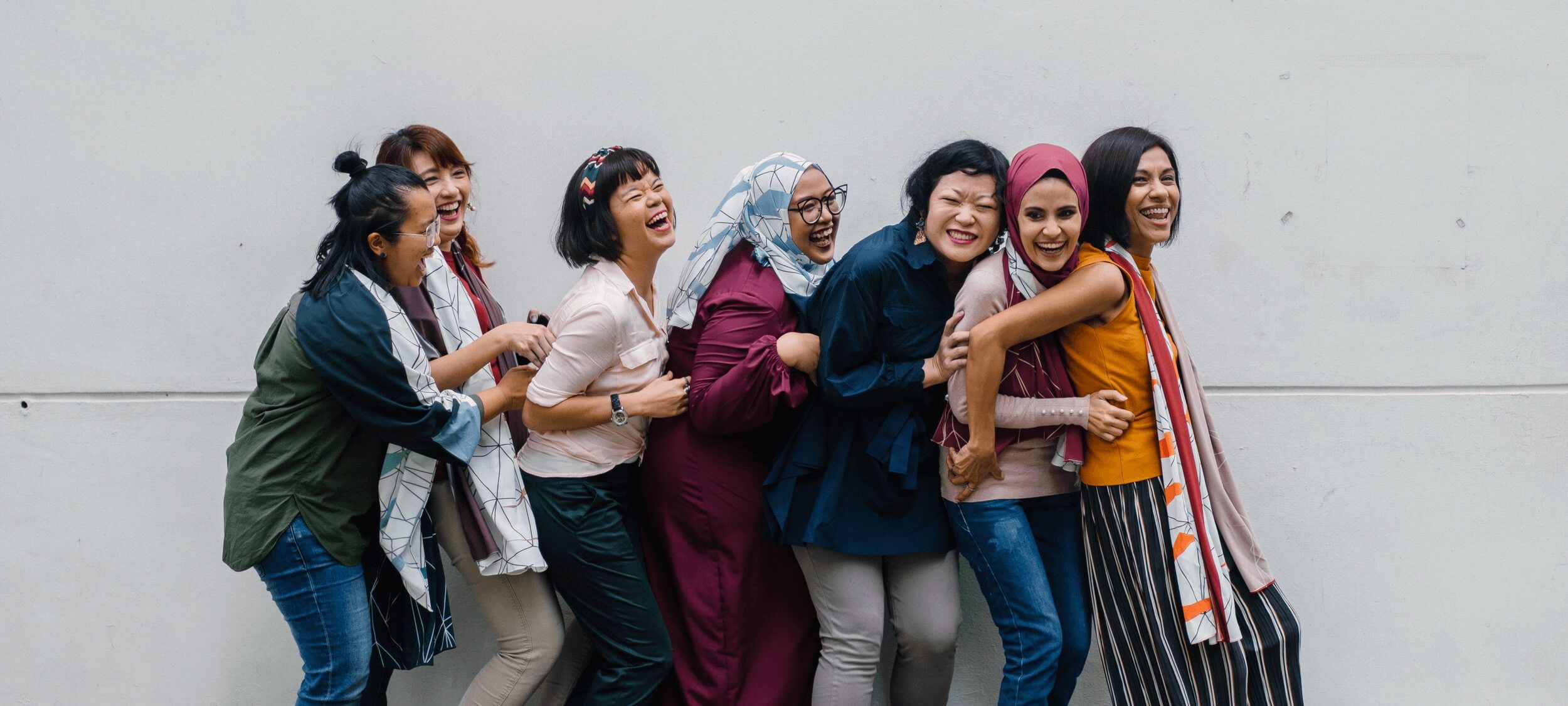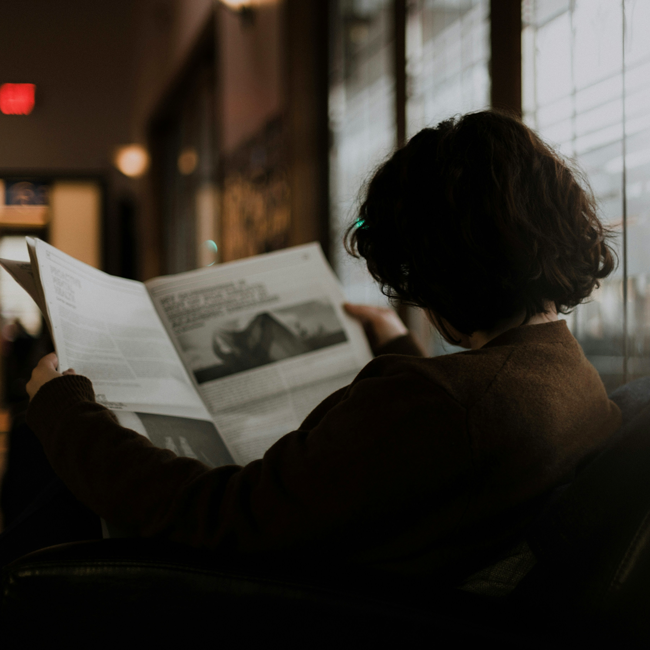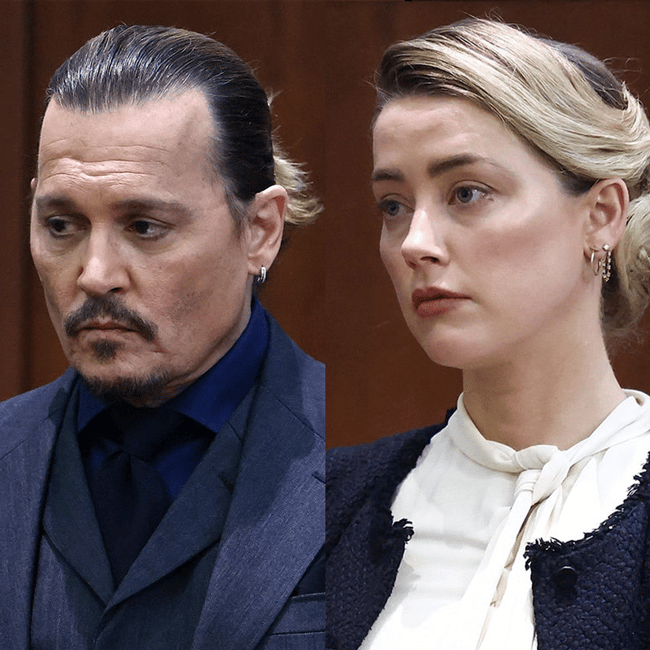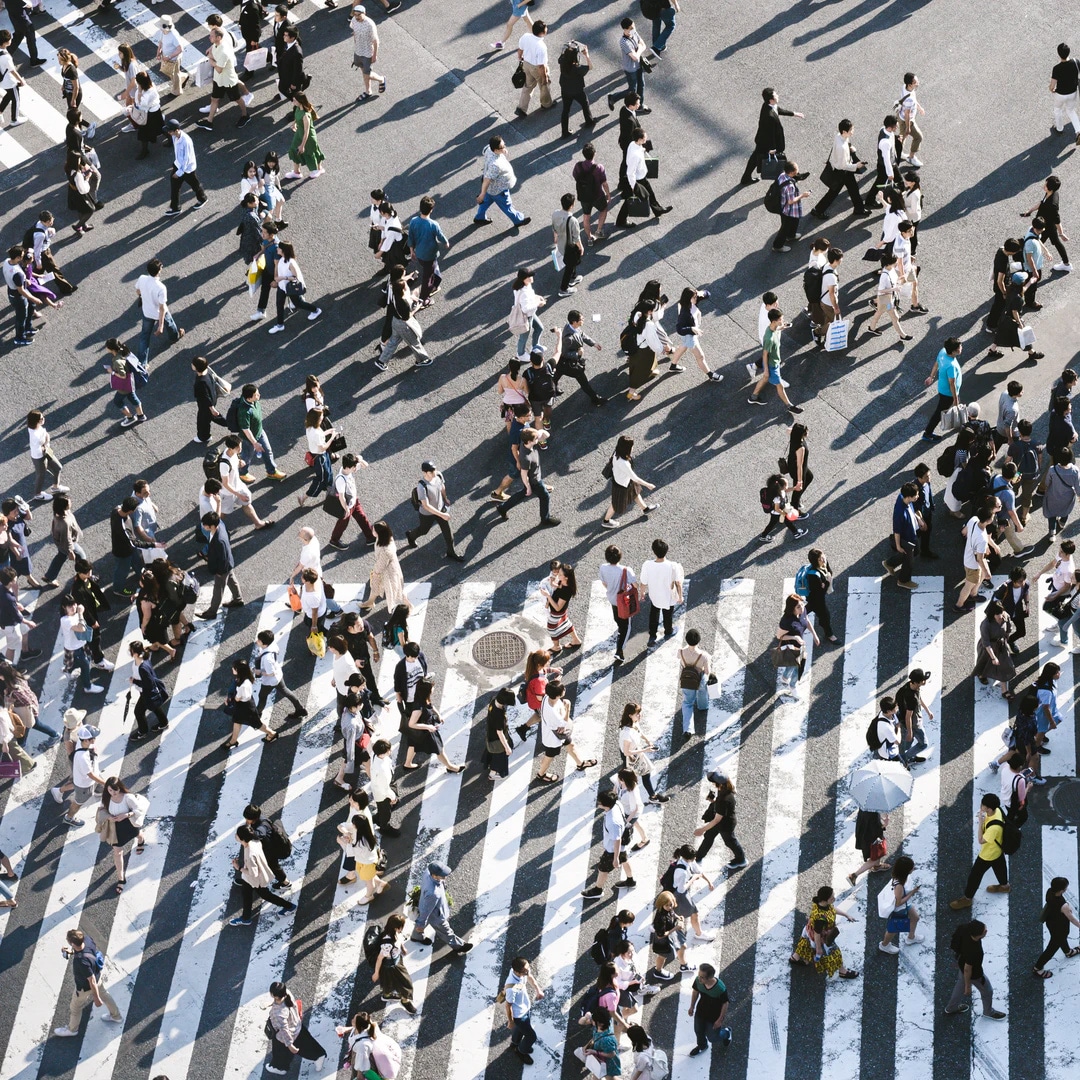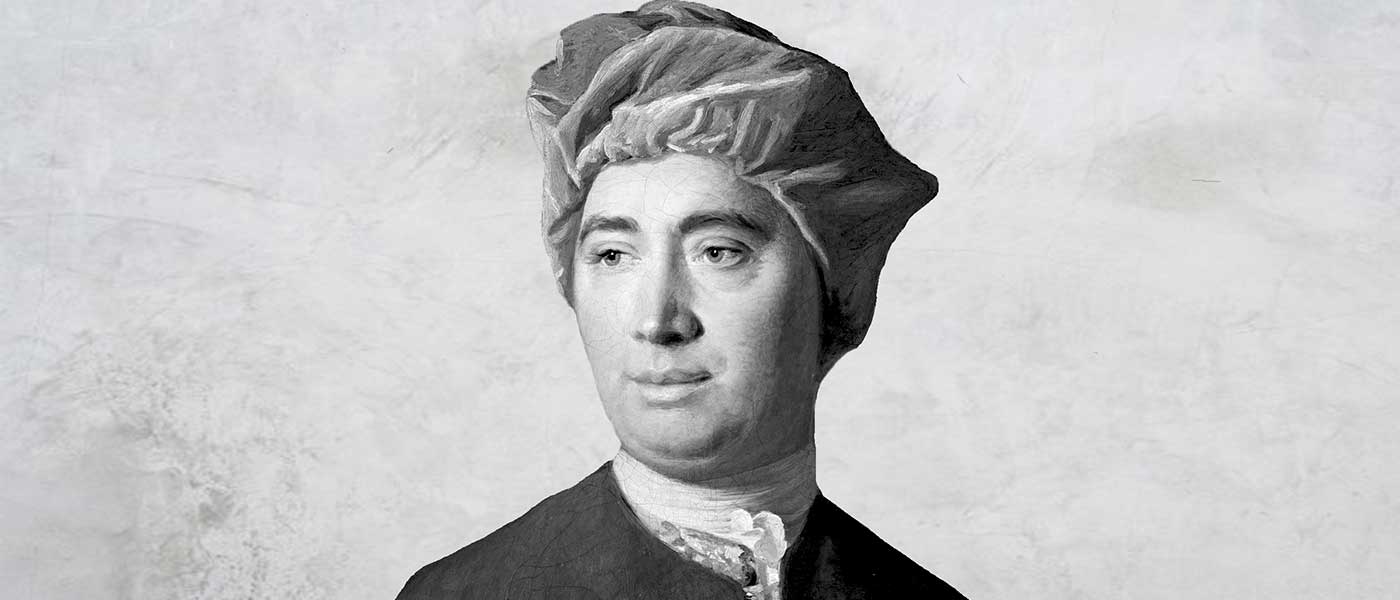Exercising your moral muscle

Exercising your moral muscle
Opinion + AnalysisHealth + WellbeingRelationships
BY The Ethics Centre 8 SEP 2021
Day-to-day decisions carry more weight in the context of the pandemic.
Previously simple choices like whether or not to go to the shops are now shadowed by dire consequences, and the act of constantly weighing up those consequences can lead to ‘moral fatigue’.
“This is the kind of wearing down of a person who is constantly making ethical decisions in conditions of fundamental ambiguity,” Ethics Centre executive director Dr Simon Longstaff recently told the ABC.
“It’s the sense of the weight of your decision that can be the source of the fatigue.”
Much like physical exercise, Dr Longstaff says there are ways to exercise our moral muscle so that it becomes stronger. Our choices matter because of the cumulative effect they have, and if exercised every day, building up moral fitness can also help prevent moral injury and its effect on our mental health.
Here are four ways to exercise your moral muscle and help with decision-making:
- Build a support system of friends and family members around you who are open to the conversation. Nobody can be expected to know exactly what to do in any given situation, but having a support system of peers, friends and family to bounce ideas off and get perspective can be invaluable.
- Is there urgency to the problem? If not, setting it aside for a period of time and going for a walk can help with clarity. “Allowing a bit of time and literally going for a walk is one of the really good things you can do,” Dr Longstaff says. “It’s amazing how much just walking helps things just sort out in your own mind.”
- All muscles need time to recover, so factor in rest days to help manage mental exhaustion and take time to do something you enjoy. “Think creatively about ‘what makes me happy in life? What are the things that I really love doing, that I find relaxing?’,” researcher and psychologist Professor Jolanda Jetten told the ABC. “We know that feeling in control is a very good predictor of good health, physical and mental. People should think of ways they can encounter situations and contexts where they feel fully in control, where they don’t have to worry.”
- If all else fails, or you’re not sure who to talk to, make a booking with the Ethics Centre’s hotline Ethi-call and speak with a qualified counsellor to help shape your perspective and find a pathway that’s right for you.” A service like Ethi-call helps you become really clear about the facts of the matter,” Dr Longstaff says. “Most importantly, what it does is give you the ability to shape your perspective so you can see the problem from different angles, and in that you might open up an option that never occurred to you that resolves the situation.”
Free, independent helpline Ethi-call provides guidance and support to anyone facing a difficult ethical dilemma or decision. Book a call with a qualified counsellor here.
Ethics in your inbox.
Get the latest inspiration, intelligence, events & more.
By signing up you agree to our privacy policy
You might be interested in…
Opinion + Analysis
Politics + Human Rights, Relationships
Want #MeToo to serve justice? Use it responsibly.
Big thinker
Relationships
Big Thinker: Buddha
Opinion + Analysis
Relationships, Society + Culture
Big Thinker: Kwame Anthony Appiah
Opinion + Analysis
Health + Wellbeing, Business + Leadership
Service for sale: Why privatising public services doesn’t work
BY The Ethics Centre
The Ethics Centre is a not-for-profit organisation developing innovative programs, services and experiences, designed to bring ethics to the centre of professional and personal life.
Violent porn and feminism

Violent porn and feminism
Opinion + AnalysisRelationships
BY Georgia Fagan The Ethics Centre 1 SEP 2021
Does pornography, especially violent pornography, contribute to gender-based violence, and if so, is censorship the answer? Or can the pornographic industry coexist with the drive towards gender equality?
We occupy a world plagued by sexual and gender-based violence. The United Nations declaration on the Elimination of Violence against Women (1993) asserts that such violence need be recognised as “a manifestation of historically unequal power relations between men and women”.
Globally in 2017, 219 women were killed each day by either a member of their own family or by their own intimate partner. Debates about the complex causes of such violence and reasons for the persistence of gender inequality remain. The role that pornography may play in both the maintenance and propagation of these harms is one of many factors considered relevant to the debate. Specifically, ethicists are needed to address the question: Could pornography and feminism be compatible bedfellows after all?
Renowned feminist philosopher Catherine Mackinnon argues that pornography “works as primitive conditioning”, meaning that its content is likely to inform the desires and subsequent actions of its viewers. Mackinnon asserts that if pornographic images are violent, this is likely to result in unwanted sexual violence being inflicted onto others by pornography’s consumers.
Contemporarily, debate and disagreement persist regarding how pornography should be managed for adult audiences.
Various philosophers and feminist theorists, such as Mackinnon, argue in favour of some form of criminal action being taken against certain types of pornography due to its capacity to harm women. In 1983, Mackinnon, alongside feminist writer and activist Andrea Dworkin, brought forward an Antipornography Civil Ordinance which proposed that pornography needs to be treated as a violation of women’s civil rights. The pair aimed to remove the freedom of speech protections pornography had been granted under United States law. The ordinance was ultimately struck down by the courts.
Debate continues as to whether pornography, particularly forms of pornography which depict explicit violence against women, can remain conducive with the feminist project of gender equality.
To this day, feminists remain largely divided over MacKinnon’s antipornography ordinance. Debate continues as to whether pornography, particularly forms of pornography which depict explicit violence against women, can remain conducive with the feminist project of gender equality.
Calls to dismantle the industry of pornography are often taken to be synonymous with feminist action. In such cases, this action is thought to be the best means of protecting women from an industry rife with exploitation. Similarly, calls to cease pornographic productions are often thought to serve the function of preserving women’s dignity by allowing them to avoid careers centred around sexual objectification.
However, demands for censorship or a general production shutdown of pornographic films are also calls to severely limit the career opportunities and subsequently the financial resources of pornographic actresses. Doing so may risk further degrading these workers’ rights. The profitability and questionable legality of the porn industry often permits it to function below industry standard, resulting in inadequate worker protections being extended to porn actors and actresses.
Stoya is a female adult entertainer who has spoken openly about a form of feminism which she worries hates both sex work and pornography. She is concerned that female sexuality is only being embraced within narrow margins, neglecting the possibility that hardcore pornography may empower women, both actresses and viewers, rather than degrade them. Stoya argues that a contemporary feminism which celebrates women’s right to work and earn an independent wage is flawed if it simultaneously rebukes women who freely choose to perform in pornography to acquire that wage. For Stoya, performing in hardcore pornography (produced under fair working conditions) does nothing to degrade the status of female performers. Rather, it stands as a celebration of a tirelessly campaigned for and emancipated female sexuality.
Denying pornographic actresses the rights and representation which permits them to carry out their work safely is an injustice to women which should be feared.
Denying pornographic actresses the rights and representation which permits them to carry out their work safely is an injustice to women which should be feared. Doing so puts these women at increased risk of assault and exploitation out of fear their allegations will not be trusted or that they will meet with legal consequences. Stoya herself brought forward rape charges against famous male pornstar James Deen, and she holds that the remedy to such injustices lies in improving workers’ rights and the legislative systems surrounding the industry of pornography, rather than in trying to shut down the industry altogether.
This lack of regulation constitutes an injustice far greater than the supposed, yet largely unarticulated, harm of women being free to use their naked bodies for profit. The mere existence of agential and passionate hardcore pornographic actresses importantly signals the beginnings of a world where women’s bodies are no longer policed in ways which unjustifiably align sex with shame and exploitation.
So long as the porn industry is made to function on par with other industry’s standards, there is no reason to consider the bodies of female pornographic actresses anymore degraded, or exploited, than non-pornographic actresses, tradespeople, or frontline healthcare workers.
Calls to censor or morally condemn pornography are often less concerned with the rights of pornographic actresses and more with the potentially negative impact pornography has on its consumers. There are concerns, for example, that viewing violent pornography may increase sexual assault rates, a causal link which is yet to be definitively established. However, even if particular depictions of women’s bodies were found to increase the likelihood that men assault women, it is not immediately apparent that the desirable solution would be to forbid those depictions.
This censorship style solution shares particular characteristics with victim blaming culture, in which victims are blamed for the actions of perpetrators. In both victim blaming and pro-censorship anti-porn positions, the onus of change is placed on those who are determined to be the cause of any given injustice. The pornographic actress, for example, is told she cannot continue to do her work, instead of alternative interventions being sought which target perpetrators who may have been inspired by viewing particular pornographic depictions. We do not think it suitable to tell women to wear more clothing to stop men raping them; why should matters of pornography be handled any differently?
There are more desirable, alternative solutions to address contemporary issues of misogyny. First is the formation and endorsement of a safe and responsible pornography industry where the agency and security of actors and actresses is guaranteed. Unfortunately there will always be room for exploitation and abuse, however, these risks can be mitigated by extending workers’ rights and fair working conditions to pornographic actors in the same way such rights are endowed to workers in other industries.
Content subscription service Onlyfans stands as a site moving the pornography industry in this direction by allowing performers greater control over their content and income. OnlyFans allows performers to safely and independently produce pornographic content. However, the platform hasn’t avoided trouble for hosting adult content: Onlyfans recently announced it would be banning explicit content in a bid to attract investors, only to reverse its decision within a week after outcry from users.
Ongoing periphery interventions are also required to address gender-based violence and gender inequality more generally, such as improved sex education curriculums which provide more comprehensive education on consent and respectful relationships to school age children.
Interventions such as bolstering the regulatory bodies surrounding pornography and improving sex-ed curriculums allows societies to place adequate accountability on those who commit or are at risk of committing acts of violence against women. These interventions should be favoured over those which risk undermining the agency of both female performers and consumers of pornography.
Pornography, even violent pornography, need not be incompatible with the feminist project of gender equality.
Pornography, even violent pornography, need not be incompatible with the feminist project of gender equality. Theorists and feminists alike need to engage in critical discourse regarding where the onus of change need be placed. The porn industry, pornographic actresses and perpetrators of violence against women are all potential targets of this change. The decisions we make regarding what actions should be taken will determine whether or not pornography is compatible with contemporary feminism.
Ethics in your inbox.
Get the latest inspiration, intelligence, events & more.
By signing up you agree to our privacy policy
You might be interested in…
Opinion + Analysis
Relationships
It takes a village to raise resilience
Opinion + Analysis
Relationships
When are secrets best kept?
Opinion + Analysis
Relationships
Ethical dilemma: how important is the truth?
Big thinker
Relationships
Big Thinker: Jelaluddin Rumi
BY Georgia Fagan
Georgia has an academic and professional background in applied ethics, feminism and humanitarian aid. They are currently completing a Masters of Philosophy at the University of Sydney on the topic of gender equality and pragmatic feminist ethics. Georgia also holds a degree in Psychology and undertakes research on cross-cultural feminist initiatives in Bangladeshi refugee camps.
BY The Ethics Centre
The Ethics Centre is a not-for-profit organisation developing innovative programs, services and experiences, designed to bring ethics to the centre of professional and personal life.
Australia's ethical obligations in Afghanistan

Australia’s ethical obligations in Afghanistan
Opinion + AnalysisPolitics + Human Rights
BY Simon Longstaff 1 SEP 2021
After 20 years of waging war in Afghanistan, the United States and its allies (including Australia) have withdrawn from the field – leaving the Taliban back in power.
The temptation is to label this outcome a resounding defeat. But how does one judge in such matters? Perhaps the Taliban of 2021 has learned, over the past 20 years, how to be better governors of Afghanistan – at least better than they were in the period leading up to 2001; and better than the series of governments that have muddled along in the interim. Perhaps the quality of the peace that will now prevail in Afghanistan will be better than that which would have otherwise existed if no war had been fought. If so, then the loss may not be as great as first thought.
Countries like Australia will need to act on their obligation to stay the course and help the Afghan people as best as they can.
Yet, if this possibility is ever to amount to something more than a feeble dream, then those who fought war need to do more than ‘hope for the best’. Rather, countries like Australia will need to act on their obligation to stay the course and help the Afghan people as best as they can.
Some might challenge the idea that Australia is bound by any obligation to the Afghans. After all, it might be said, have we not already invested a small fortune in treasure? Have we not already sent our sons and daughters to shed blood and to die under the Afghan sun?
My answer begins with the simple truth that, for the most part, we found ourselves expending blood and treasure for our own benefit – and not, primarily, for the good of Afghanistan. Much as we might be comforted by the rhetoric of ‘noble causes’ and ‘high ideals’, when it comes to the realpolitik of statecraft, our politicians send our forces into harm’s way in service of what they plainly believe to be the national interest. As has so often been the case, we went to war to support our most important ally, the United States of America. We went to war so that we could sleep more soundly in our beds – by blunting the edge of terrorism. So, our arrival in Afghanistan (and all that followed) was not driven by an overarching desire to improve the lives of Afghans.
Of course, we also aimed to do some good – and indeed we did. Many Afghans have led better lives due to Australia’s investment in aid and development. Indeed, I have first-hand knowledge of the efforts we have gone to in helping to improve, say, the circumstances of women and girls in Afghanistan. The good we did is real. However, let’s not pretend that it was the product of altruism alone.
I have made much of the self-interest of nations because I think it is key to our understanding the ethical obligation that still binds the Australian government – despite our withdrawal.
As we know, thousands of Afghans rallied to our cause. They served as locally engaged staff in our embassy. They worked as interpreters – both in civilian and military settings. They were our partners in aid and development projects. All of these people directly enabled Australia to realise – as far as possible – its strategic objectives. They did so at considerable personal risk – openly assisting a self-declared enemy of the Taliban (and even more extreme groups like ISIS-K). This risk was exacerbated by the work they did – on our behalf – not just in areas of conflict. For example, what would a hardline opponent to women’s empowerment think of those who have worked tirelessly to achieve that outcome? Surely, those who worked to help women now have a target on their back!
It’s not just specific individuals we need to think of. Large numbers of apparently unconnected Afghans have borne the brunt of 20 years of war waged for our benefit. They were the ones maimed and killed – whether as ‘collateral damage’ or as the intended victims of fundamentalists bent on dominating and pacifying through terror.
It was shameful that our response to the growing power of the Taliban was to do ‘too little, too late’.
Given all of this, it was shameful that our response to the growing power of the Taliban was to do ‘too little, too late’. In saying this, I acknowledge that very few people predicted the speed or comprehensive nature of the Taliban victory. However, I suspect that the larger problem was that too few in government truly understood the depth of our obligation to those Afghans who have assisted us. As much as anything else, it is the sense of indifference that has led many in our armed forces to feel that we have betrayed those left behind – and to express a sense of shame on behalf of our nation.
We should have had much to celebrate. Despite the dark shadow cast by the findings of the Brereton Report, there is much to be proud of in terms of Australia’s overall contribution. That legacy is at risk of being sullied by the manner of Australia’s departure and the sense that we will do the minimum that decency requires – and then wash our hands of the whole thing, leaving our faithful collaborators to pay the price of our failure.
I mentioned before that talk of defeat may turn out to be illusory; that there is a chance that 20 years of war has led to a better future than could otherwise have been hoped for. This brings to mind an old Islamic proverb, “Trust in Allah! … but tie the camel’s leg”.
If we are to find honour, then we must not abandon our Afghan colleagues – not even now when the evacuation has been declared ‘complete’. We need to make it easy for those we left behind to secure visas. We need to ease their passage to safety. We need to continue to invest – if at all possible – in programs that improve the plight of ordinary Afghans – even while they live under Taliban rule.
That much we owe them for bearing their share of the burdens arising out of our self-interested invasion of their country.
Ethics in your inbox.
Get the latest inspiration, intelligence, events & more.
By signing up you agree to our privacy policy
You might be interested in…
Opinion + Analysis
Politics + Human Rights
Settler rage and our inherited national guilt
Explainer
Society + Culture, Politics + Human Rights
Ethics Explainer: Moral Courage
Opinion + Analysis
Politics + Human Rights, Relationships, Society + Culture
Stop giving air to bullies for clicks
Opinion + Analysis
Politics + Human Rights, Relationships
Why we should be teaching our kids to protest
BY Simon Longstaff
Simon Longstaff began his working life on Groote Eylandt in the Northern Territory of Australia. He is proud of his kinship ties to the Anindilyakwa people. After a period studying law in Sydney and teaching in Tasmania, he pursued postgraduate studies as a Member of Magdalene College, Cambridge. In 1991, Simon commenced his work as the first Executive Director of The Ethics Centre. In 2013, he was made an officer of the Order of Australia (AO) for “distinguished service to the community through the promotion of ethical standards in governance and business, to improving corporate responsibility, and to philosophy.” Simon is an Adjunct Professor of the Australian Graduate School of Management at UNSW, a Fellow of CPA Australia, the Royal Society of NSW and the Australian Risk Policy Institute.
Why we need land tax, explained by Monopoly

Why we need land tax, explained by Monopoly
Opinion + AnalysisBusiness + Leadership
BY Joshua Pearl 25 AUG 2021
Most people know the game Monopoly. But few are aware Monopoly was inspired by political economist Henry George’s warning against a dystopic society where land, water and minerals are owned by the dominant few.
To win in Monopoly, first you buy natural resources. Then you monopolise the land. Add some houses and hotels. And finally, force your adversaries into bankruptcy. In the game, it helps to be strategic, but mainly it helps to be lucky. Lucky to arrive first. Lucky to be able to hoover up the best land. In the end, lucky to crowd out the others, making them indigent losers.
Henry George was a brilliant self-taught 19th century American political economist. An advocate for free-trade and an opponent of protectionism, George is however best known for his criticism of the monopolisation of natural resources, arguing this both inhibits economic efficiency and is manifestly unfair. To achieve natural resource equality, George argued natural resources should be taxed at the level it would cost to rent the “unimproved” land. These taxes could be used to abolish other taxes (George’s position was to abolish all taxes except land tax), help fund government expenditure, such as the military, or redistribute in equal proportion to citizens.
Georgism is not an argument for material equality in any meaningful sense. Equal natural resource ownership is consistent with large levels of inequality when it comes to income and the ownership of non-natural assets. A Georgist might argue individuals own 100% of their labour income; that the industrious builder deserves his multiple houses (but not land), cars and boats, and that these are his alone; that the tech entrepreneur deserves her billions but has no right to buy up huge swathes of land. A Georgist position is consistent with minimal state intervention across welfare, education funding and paid parental leave.
The ideas of Henry George have garnered support from various quarters. Economist Joseph Stiglitz has argued Henry George’s proposal could fund the optimal supply of local public goods. Leader of the Chicago School of Economics Milton Friedman said, “in my opinion, the least bad tax is the property tax on the unimproved value of land, the Henry George argument of many, many years ago”.
One reason why equal natural resource ownership is preferable is because the alternatives are so underwhelming.
The alternatives of the ideological left, crudely speaking, have disastrous economic consequences. Under collective ownership, government ineptly decides what is produced from natural resources, undermining individual choice and failing to respect citizens. While under common ownership, people use natural resources whenever and however they choose, destroying the environment and economy, as predicted by the tragedy of the commons.
The alternative approaches of the ideological right, again crudely speaking, have their own problems. Primacy is given to first arrivals (though curiously, this line of argument is seldom extended to First Nations people), treating citizens unequally. Like Monopoly, first arrivals win, and second arrivals lose. These arguments typically rest on the ambiguous liberal Lockean proviso that “enough, and as good, left in common for others” or the harsher libertarian Nozickian argument that non-landowners need only pass a subsistence baseline living standard (essentially, non-landowners can eat and have water). But these claims ignore that natural resources are not made by anyone. And if no one has done anything to deserve the unimproved natural resources, and citizens of a country are equal, why are they granted such unequal rights over natural resources, the literal foundation of a country?
To Henry George, every citizen has an equal moral claim to the earth and without this, there is no equality among citizens.
In Australia, we are something of a Hasbro Monopoly ‘Special Edition’. Tech billionaires and their ilk hold some hundreds of millions worth of natural resources, while the mob from Broken Hill have somewhere closer to, and more likely very near, zero. Foreign investors such as Canadian pension funds and the Chinese Government own 14% of Australian agricultural land and 11% of Australian water assets.
Overall, Australian natural resources are worth more than seven trillion dollars (about 85% of which is land, driven by city land values), equating to around $300,000 per person. However, the bottom 20% of Australian households (typically younger folk, most likely regional or outer suburban people) have an average natural resource wealth of under $20,000 (and an average net wealth of around $25,000).
Yet there are reasons to be optimistic. The ACT is 10 years into their 20-year plan to abolish stamp duty and replace this with a land tax, providing instructive “dos” and “do nots” for other jurisdictions. And the NSW Government, with a coalition of support from real estate bodies, accountants, economists and community representative bodies, has proposed a land tax which sensibly considers a gradual introduction of land tax, ensuring fairness for those who have already paid stamp duty, although the proposal insensibly considers making land tax optional.
Overtime, a NSW land tax could be used to reduce other taxes, such as payroll tax, levied by the state government, or income tax, levied by the federal government. Reducing income taxes would reverse the peculiarity of the Australian tax system that we socialise the largely privately created wealth of labour, and privatise the naturally created wealth of natural resources.
Economists boast that a land tax boosts economic productivity, stimulates investment and increases efficiency, all neat reasons for a land tax. But the overwhelming case for an Australian land tax is fairness: that Australian dirt, water, ore and air, are owned by each Australian equally. The overwhelming case for a land tax in Australia is to ensure we don’t become a game of Monopoly.
Ethics in your inbox.
Get the latest inspiration, intelligence, events & more.
By signing up you agree to our privacy policy
You might be interested in…
Opinion + Analysis
Business + Leadership, Politics + Human Rights
Who’s afraid of the strongman?
Opinion + Analysis
Business + Leadership
The Royal Commission has forced us to ask, what is business good for?
Opinion + Analysis
Business + Leadership
This tool will help you make good decisions
Opinion + Analysis
Health + Wellbeing, Business + Leadership
Teachers, moral injury and a cry for fierce compassion
BY Joshua Pearl
Joshua Pearl is the head of Energy Transition at Iberdrola Australia. Josh has previously worked in government and political and corporate advisory. Josh studied economics and finance at the University of New South Wales and philosophy and economics at the London School of Economics.
Meet Daniel, helping us take ethics to the next generation

Meet Daniel, helping us take ethics to the next generation
Opinion + AnalysisRelationshipsSociety + Culture
BY The Ethics Centre 23 AUG 2021
At The Ethics Centre, we believe ethics is a collaboration – a conversation between diverse people trying to figure out how to act, live and make good decisions.
This means we need a range of people participating in the conversation, of all ages. Thanks to our donor, Chris Cuffe AO at Third Link Investment Managers, we are excited to share that we have recently appointed Daniel Finlay to Youth Engagement. Daniel is a graduate from the University of Sydney with a Bachelor of Arts and Science (Hons) and a Postgraduate Certificate in Publishing. He also received Class I Honours for his thesis in ethical philosophy. To welcome him on board and introduce him to you, our community, we sat down for a brief get-to-know-you chat.
Tell us, what attracted you to philosophy?
My first philosophy-related class was called Bioethics and I actually took it because I had come back from a break and couldn’t continue my psychology units until the next semester. But from the moment I left the first tutorial, I knew this was where I would end up going. The unit was practical ethics with a focus on humans and their bodies. The topics we covered ranged from black-market organ selling to sex work to people suffering from body integrity identity disorder (BIID). The BIID discussion particularly made me realise how many questions we have to face that simply don’t have neat or obvious answers. BIID is a very rare disorder where a healthy person very strongly desires to amputate one or more of their limbs. And here we were, a group of fresh-faced 19-year-olds, trying to figure out what the hell to do with that information.
That sounds like an interesting place to start. Let’s jump over to COVID and restrictions. How are you dealing with it and what do you hope we’ll be able to bring out the other side?
Honestly, I’m part of the lucky few who haven’t been too flipped around by the lockdowns. I do very much miss rock climbing and have admittedly fallen back into lazy habits without it, but on the whole I can deal with being at home very easily because that’s where I like to spend most of my time regardless.
I’m hoping that we all come out of this with a bit more patience. COVID has obviously slowed a lot of things down for a lot of people. Media content is coming out slower, packages are constantly delayed, work projects put on the back-burner. Hopefully most people come out the other side of this with the realisation that most things aren’t as urgent as they sometimes seem, and a little patience when dealing with fellow humans can go a long way.
With all that time at home, you must have developed some guilty pleasures during the pandemic. Can you share one with us?
I wish I had something quirky or funny to share but the sad reality is my guiltiest pleasure is just watching TikToks at midnight in bed instead of getting a reasonable night’s sleep.
Pretty sure that you aren’t alone there. So, what does a standard day in your life look like?
Mostly playing games, watching Netflix/YouTube and managing an online Discord community I run. At the moment, I’m researching how, when and why young people engage with ethics in their lives and offering a younger perspective on a range of projects. Whenever I find the energy, I do try to make time for reading (I’ve recently gotten back into some fantasy novels), walking, listening to podcasts, rock climbing, writing and annoying my cat, Panda.
Let’s wrap up close to home. What does ethics mean to you and why are you interested in bringing it to the attention of young people?
To me, ethics is about learning to live with ourselves in a way that is sustainable. Part of that process is learning how to question ourselves, other people, systems and structures. It’s about identifying assumptions and patterns in our beliefs and behaviours and learning to discard or modify the unfounded ones.
I’m interested in bringing it to a younger audience because I think studying ethics and critical thinking is such an important part of developing the cognitive resources needed to make significant change in the world in a responsible and empathetic way. I’ve already seen firsthand, from being a Primary Ethics teacher, the immense good that this can do, so if I can help bring these resources into the brains of passionate teenagers then I think the world will be much better off.
Ethics in your inbox.
Get the latest inspiration, intelligence, events & more.
By signing up you agree to our privacy policy
You might be interested in…
Opinion + Analysis
Business + Leadership, Relationships
The twin foundations of leadership
Opinion + Analysis
Climate + Environment, Politics + Human Rights, Relationships
A burning question about the bushfires
Opinion + Analysis
Health + Wellbeing, Relationships, Science + Technology
Parent planning – we should be allowed to choose our children’s sex
Opinion + Analysis
Society + Culture
FODI digital returns for three dangerous conversations
BY The Ethics Centre
The Ethics Centre is a not-for-profit organisation developing innovative programs, services and experiences, designed to bring ethics to the centre of professional and personal life.
Five steps to help you through a difficult decision

Five steps to help you through a difficult decision
Opinion + AnalysisRelationships
BY The Ethics Centre 17 AUG 2021
When big decisions loom, it’s often easy to get stuck ruminating all the possible ways to proceed, how it might go wrong, or get confused by taking on too much external advice and input.
Of all the ways you might act, which is the best? Which of all the possibilities should you choose?
Putting ethics at the centre of your thinking can help. It offers a framework for evaluating life’s difficult decisions, which invariably involve questions about what’s good and what’s right.
These five steps can help you move toward a solution that is in alignment with your purpose, values and principles.
1. Check in with your body
Take a moment to drop into your body. Often, we rush headlong into considering without pausing to reflect on how we feel. Our emotions play a major role in our decisions – both consciously and unconsciously. Stop for a moment and pay attention to your feelings; what are they telling you about what matters most?
You may not unlock immediate clarity, and that’s ok. Just begin by recognising and labelling the emotions that arise. Often these feelings are a compass pointing you to what matters most to you.
2. Question your assumptions and identify the facts.
Often when we feel uncertain, it’s because we are lacking information that is required to make a considered decision. What do you know about the choice in front of you? Write down all the facts that you know about your options.
Now test your thinking. Is there anything you are assuming to be true that may not be? Bracket fears or other people’s opinions for a moment and just focus on what you know to b be true. Be aware of jumping to any conclusions around the circumstance, people involved or potential outcomes.
By looking at the situation more objectively, you can identify what you actually know, and what you need to know. Now ask yourself: do you have all the facts and information that you need to make an informed decision? If there are gaps, write a list of the questions you need answers to, and seek the information that you need to have more factual data to consider.
3. Consider how the options relate to your values.
It’s time to get clear on what matters most to you. That is the key to unlocking your values. Our values are like signposts, they indicate what’s most important to us. It can help to consider the situation through the lens of what you consider most ethically relevant, starting with values that matter most to you such as honesty, transparency, kindness, or integrity. Your values also reflect what you stand for, desire or seek to protect, such as financial security, freedom, creativity, family or community for example.
4. What are the lines you won’t cross?
Next, bring into consideration your principles. If values are the signposts, then principles are the guide rails that keep us on track. They apply to the pursuit of many different types of goals and help when values conflict with one another. Principles can’t be selectively applied. Once adopted, they apply to every decision.
You may value success but not lying or cheating is a solid principle to guide how you achieve success.
You might have just a handful of principles that you personally live by. Check in to make sure that the decision you make doesn’t cause you to cross any of those guide rails.
5. Decide on what matters, and why.
Unpack all of the reasons you might decide in each way and with all of the information on the table – rule out any option that moves you away from your purpose, values and principles, and ultimately, seek out the decision that best aligns with them.
Decision-making is complex at the best of times. But sometimes life can present us with a choice where there is no right option – or where both pathways are wrong. When those moments strike it can feel impossible to find a pathway forward.
You don’t have to navigate it alone. Ethi-call is a free helpline designed to provide structured support and guidance through those very difficult decisions.
Appointments are with trained ethics counsellors who take you through a series of questions that will help clarify the situation and shine a light on what is most important to you.
Make a booking at www.ethi-call.com.
Ethics in your inbox.
Get the latest inspiration, intelligence, events & more.
By signing up you agree to our privacy policy
You might be interested in…
Opinion + Analysis
Relationships
Courage isn’t about facing our fears, it’s about facing ourselves
Opinion + Analysis
Politics + Human Rights, Relationships, Society + Culture
In the face of such generosity, how can racism still exist?
Opinion + Analysis
Health + Wellbeing, Relationships
This isn’t home schooling, it’s crisis schooling
Opinion + Analysis
Relationships, Society + Culture
Community is hard, isolation is harder
BY The Ethics Centre
The Ethics Centre is a not-for-profit organisation developing innovative programs, services and experiences, designed to bring ethics to the centre of professional and personal life.
Vaccines: compulsory or conditional?

Vaccines: compulsory or conditional?
Opinion + AnalysisHealth + WellbeingPolitics + Human Rights
BY Simon Longstaff 16 AUG 2021
One of the most significant ethical issues to confront the community in the current phase of the COVID-19 pandemic concerns the extent to which people should be required to achieve full vaccination.
The debate mirrors earlier discussions about where to set the balance between public safety and personal liberty. In the wake of events such as the 9/11 terrorist attack or the Bali bombing, successive governments introduced legislation to curb civil liberties that, in some cases, had been fought for centuries ago – with the shedding of much blood in the name of liberty.
However, there was scarcely a whimper of protest from conservatives at that time, or since. Former Prime Minister, Tony Abbott, spoke for many government leaders when, in February of 2015, he said that, “There is no greater responsibility – on me – on the government – than keeping you safe”.
That formula has been invoked time and time again in response to criticism from those who have questioned the erosion of civil liberties. Once again, Tony Abbott outlined the rationale for preferring public safety over personal liberty, noting that one or two people could pose a threat to the community. In the same national security statement quoted above, Mr Abbott when on to say, “But frankly, I’d rather lose a case, than lose a life.”
For the most part, the community has accepted this set of prescriptions. It is against this background that one needs to understand the approach of government to the menace posed by COVID – where lives can be threatened by the actions of just one or two individuals – including those who are free from malicious intent.
As noted above, I cannot think of single conservative commentator who took Mr Abbott (or other leaders) to task for their preference of public safety over personal liberty. Yet, many of these same commentators are lining up to condemn politicians who take an identical stance in response to the proportionately greater risk to life posed by COVID-19. In doing so, some have decided to oppose a range of government measures that they think identify as violating individual liberties – ranging from ‘lockdowns’ to vaccination.
Unhelpfully, the debate has been skewed by the failure to make a clear distinction between different types of restriction.
As far as I know, there has been no serious proposal – from government or the private sector – for ‘compulsory vaccinations’. Yet, this ‘red herring’ is causing widespread debate and a fair measure of concern.
So, how should we think about the issue of vaccinations?
It seems to me that the greatest source of confusion (and concern) lies in the failure to distinguish between three types of requirement: compulsory, optional and conditional.
Compulsory requirements are enforced – and those that contravene are subject to punishment. There are very few compulsory requirements in liberal democracies. Examples in Australia include: the requirement for children to be educated (e.g. attend school); and the requirement that adult citizens attend voting places and receive a ballot paper (whether they cast a valid vote or not is up to them). Most recently, we have had genuinely compulsory ‘lockdowns’. If you fail to abide by the rules, then you are subject to formal punishment by the state.
Optional requirements leave each person to decide whether or not to engage in the specified activity – without consequence. As such, they are generally held to be uncontroversial.
Conditional requirements are far more common. Typically, they are in the form of: ‘if … then’. For example, ‘if you wish to drive a car … then you must be licensed to do so’. Or, ‘if you wish to enter this mine … then you must wear safety equipment’. As will be evident, no person is required to drive a car or enter a mine site. To do so is a matter of choice. In this lies the principal difference between ‘conditional’ and ‘compulsory’ requirements.
I have not really heard anyone make the case for ‘compulsory’ vaccination. Rather, there are arguments being made in favour of vaccination as a ‘conditional requirement’. So, how might such a requirement be justified?
First, it is easy to justify such a requirement in order to protect the health and safety of a community or a workplace. This was the line of argument that Peter Singer attributed to John Stuart Mill, in his recent opinion piece in The Sydney Morning Herald. Second, one can also justify a conditional requirement as a precondition for being able to perform a function. Third, one can set a condition that requires a person not to render themselves either unsafe or unable to perform their role. For example, a mining company might require an employee to wear protective clothing or sunscreen. This is not solely to keep the employee safe. It also ensures that the person remains fit (physically able) to perform their role, free from injury.
The same thinking can also be extended to the idea that an employee should remain fit (physically able) to perform their role free from disease. As noted above, this conditional requirement could be seen as being directed towards the welfare of the employee. Or it could be a requirement for the benefit of the employer.
In either case, no person is compelled to work under such conditions. If they are not prepared to accept the condition, then they may choose not to work for an employer imposing such a requirement. As noted above, this is common and uncontroversial in many, many cases.
A final note: nothing here has any implications for what a person should or should not believe. For example, a person may have a ‘magical belief’ that they are protected from the risk of injury or disease, yet still be required to wear safety equipment. A person may believe that COVID-19 is a ‘hoax’ yet still have to meet the conditional requirement that they be vaccinated.
Governments, companies, etc. should not be in the business of imposing beliefs on others. They can seek to persuade – but nothing more. However, they have every right to set conditions on behaviour and then leave it to people to choose whether or not to meet the conditional requirements that have been set.
Of course, this leaves open one final possibility – that a person may be unable to meet the condition through no fault of their own. For example, some people cannot operate the pedals on a car – yet may still wish to drive. The fact that they cannot operate an unmodified vehicle is not a matter of choice (or an absence of will) – it is a physical impossibility. In such cases, society might try to develop mechanisms (e.g. modified control systems) to offset the limitations. However, this will not always be possible.
Should an employer set vaccination as a condition of employment?
The decision to undertake any kind of medical procedure is a serious one.
Normally, this would be a private matter – especially when it relates to the health of an individual. However, there are multiple precedents for setting conditional requirements of a kind that involve medical procedures, including vaccination. For example, as things stand, one cannot travel to certain countries without vaccination (yellow fever). But to what extent, if any, might the context of employment render a different ethical outcome? For example, should employers apply a ‘test of relevance’ (e.g. different requirements for people working in aged care/disability sectors than, say, for construction workers)?
Some might argue that there is room for conscientious objection – but it has always been a mark of genuine cases, of conscientious objection, that people be prepared to accept the consequences of acting in conformance with their conscience. Also, the duty is to act on a well-informed conscience. That is, one cannot claim the protections or validations of conscience when based in proven error (e.g. in the belief that vaccines do not work, that they contain micro-chips, etc.).
Thus, when it comes to balancing safety vs freedom it should be recognised that both values are of importance. However, good health is an enabler of freedom. Therefore, freedom from the risk of infection (e.g. amongst employees) should be given priority. This would allow for the establishment of ‘conditional requirements’ (such as in the case of a vaccine passport). But these requirements should be structured as the minimum necessary to secure safety. For example, if the job can be done while working from home, then that should be allowed amongst those who choose not to be vaccinated. On the other hand, if the job requires contact with others (if this is strictly necessary), then a refusal to be vaccinated would be equivalent to refusing to take an anti-doping blood test (in elite sports) or to wear safety equipment in a mine.
What questions should employers consider about vaccination?
- Does vaccination significantly reduce the risk of transmission to others? If so, does the employer have a duty to limit the risk of infection faced by its employees (as a whole), customers, etc.?
- Does COVID present a risk that an infected employee will be unable to perform their duties? If so, is the risk sufficient to justify a conditional requirement that the employee protect themselves from this harm?
- What exceptions (if any) can be made for people who are unable to meet the conditional requirement (e.g. medically unfit to be vaccinated)? To what extent can the person’s work practices be managed to take account of this limitation (e.g. special facilities, use of additional PPE, etc.) so as to balance the interests of the individual and the wider group?
Conditional requirements are an everyday occurrence. They range from clothing requirements (e.g. to enter certain places), to the possession of licences, to the need for vaccinations when travelling to certain countries overseas. Some of these requirements are established to reflect cultural preferences, or as indicators of respect for particular institutions or places or as being necessary to realise values like those of ‘safety’, ‘efficiency’, etc.
In the end, when values compete – as in the case of ‘public safety’ vs ‘personal liberty’ the best approach is to seek to make every effort to minimise the damage to one value to the greatest extent possible while realising the other. It’s an approach that I think we failed to heed when it came to our nation’s response to the threat posed by terrorism – sowing the seeds that we seem to be harvesting today.
Perhaps this time round, we can do better.
As a small beginning, I wonder if we can at least drop the reference to so-called ‘compulsory’ vaccinations and instead focus on what might count as a reasonable, conditional requirement.
Ethics in your inbox.
Get the latest inspiration, intelligence, events & more.
By signing up you agree to our privacy policy
You might be interested in…
Opinion + Analysis
Politics + Human Rights
Big Brother is coming to a school near you
Opinion + Analysis
Politics + Human Rights
Big Thinker: John Rawls
Explainer
Health + Wellbeing, Relationships
Ethics Explainer: Eudaimonia
Opinion + Analysis
Health + Wellbeing, Relationships
How to pick a good friend
BY Simon Longstaff
Simon Longstaff began his working life on Groote Eylandt in the Northern Territory of Australia. He is proud of his kinship ties to the Anindilyakwa people. After a period studying law in Sydney and teaching in Tasmania, he pursued postgraduate studies as a Member of Magdalene College, Cambridge. In 1991, Simon commenced his work as the first Executive Director of The Ethics Centre. In 2013, he was made an officer of the Order of Australia (AO) for “distinguished service to the community through the promotion of ethical standards in governance and business, to improving corporate responsibility, and to philosophy.” Simon is an Adjunct Professor of the Australian Graduate School of Management at UNSW, a Fellow of CPA Australia, the Royal Society of NSW and the Australian Risk Policy Institute.
3 Questions, 2 jabs, 1 Millennial
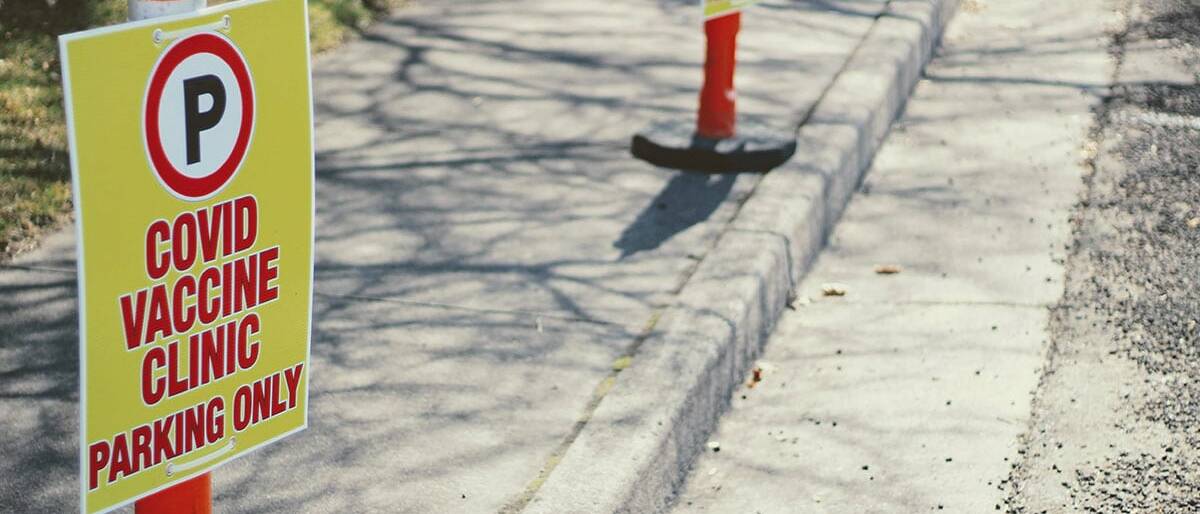
3 Questions, 2 jabs, 1 Millennial
Opinion + AnalysisHealth + WellbeingPolitics + Human Rights
BY Rebecca Blake 28 JUL 2021
What started out as a trip to get my flu shot turned into a quick, loaded political decision.
Fortunately, by stopping and reflecting, I left politics to the pollies and made my decision based on ethics.
When Prime Minister Scott Morrison announced that anyone under 40 could approach their GP to get the AstraZeneca vaccine, I decided to act. We were not long into Sydney’s second lockdown and already I was feeling the frustration of isolation. I called my GP and was told to book a consultation first before making any appointments for the jab. I decided to make a day of it and booked both my consultation and flu shot as one appointment. Any outing in Covid times is a highlight, am I right?
One week later I sat down in front of my GP. He said, “I know you’re here for your flu shot but given the situation we’re in, I strongly recommend you get the AstraZeneca. What do you want to do?” In the space of 30 seconds I had to decide whether to AZ now, or to Pfizer at some time in the future, date to be determined. The challenge? Putting aside the loaded politics and making an ethical choice.
I am aware I am privileged in being able to make this choice in the first place; I have the means to transport myself to and from the clinic, English is my first language so I can understand the information and make an informed consent. I am fit and healthy and being in a medical clinic, whilst not always comfortable, is not a traumatic experience for me. None the less given the bad rap the AZ vaccine has received, it was a little daunting.
So here are three questions this Millennial asked themself about getting the AZ vaccine now or waiting for Pfizer:
1. Who am I doing this for?
I am fully aware that the Pfizer vaccine is the preferred jab given there are some risks for young people when it comes to taking the AstraZeneca. A few friends have managed to somehow obtain a Pfizer vaccination through connections, either that or some back-alley vaccine deal (letting my imagination run wild). Black market fantasies aside, when it came to my decision making, I chose the non-preferred option as there was plenty of AZ supply to go around. This choice was my contribution to ensuring the small amounts of Pfizer are provided to those who need it most urgently.
Of course, I could wait until there is plenty of supply of Pfizer. But given that medical advice is that the vaccine reduces transmission, the decision to delay can impact the people around me, people who I love the most, such as my partner who is a teacher. I have friends who are immune-suppressed, and family members who are elderly. I feel, the more we all do to suppress transmission in the community, the safer they will be.
2. What does the best outcome look like? In the short term? In the long term?
Recently the government released an advertising campaign to encourage the public to get vaccinated. Most have seen the footage of a young woman, around my age, on a ventilator struggling to breathe and becoming increasingly distressed. There has been a lot of discussion concerning that this advert was aimed at young people, the very people who can’t get hold of the recommended vaccine for this age group. Like many, I find myself repeatedly frustrated about the vaccine roll out.
But there are actions I could do now to play my part in preventing this lockdown from lasting any longer. I have friends in the UK, many of whom have had the AZ vaccine. I want to do everything I can to help get life back to normal. I feel an overwhelming responsibility as a citizen to do what I can to prevent the spread, protect myself and fellow neighbour, and avoid the possibility of passing it on to someone I love. I channelled this frustration into an action that I as an individual can take. My decision to take the AstraZeneca was my way of contributing in some small way to increasing acceptance of a mass vaccination campaign that will improve the lives of the majority in the long term. Whilst it’s reported there are some small amounts of discomfort (fever, body aches and chills for the first 24 hours post vaccine) it’s a short-term pain for a long-term great gain.
3. What are the risks involved?
My anxiety does have its moments and I can catastrophise at the drop of a hat. The human brain likes to predict the future so it can be prepared. In moments where my anxiety flares up, I try and remember it’s just my body trying to protect itself. We tend to focus on the negatives – an easy thing to do during a global pandemic – particularly when combined with media reports of the risks and misinformation across social media.
Negativity bias is rife and it’s easy for us to be more motivated or affected by negative information than positive.
Faced with needing to make a quick decision I relied on the information given to me by my GP in the consultation.
The consultation involves your doctor thoroughly taking you through the potential risks of the AstraZeneca jab. The AZ vaccine has been associated with a rare side effect called thrombosis with thrombocytopenia syndrome (TTS). According to the Australian Government Department of Health website (www.health.gov.au), in every 1,000,000 cases there is a 3.1 chance of TTS for individuals under 50. Given the current situation in Sydney I felt the risks of COVID far outweighed the risks of adverse side effects from the vaccine. Sure, we do not know what the long-term vaccine effects could be, but it was a chance to consider the trade off between facts and knowledge and the assumptions that there might be some long-term effects from the vaccine. For now, I am sticking with my faith and trust in the medical industry. They have been working hard these past 18 months and have been right so far. Plus vaccines are not new, the first recorded use is from the 16th century in China for smallpox.
So what did I choose …
In the end, after weighing up these questions I was stoked to get poked. By the evening I was hit with the prewarned symptoms of fever and body aches but by the time 48 hours had passed, I was fit as a fiddle. I was surprised by how many work colleagues congratulated me saying how brave I was or how proud they were to know a young person playing their part to combat this disease.
One small disappointment. I didn’t get one of those, “I’ve been vaccinated stickers.” I may be 30 but the six-year-old in me was severely disappointed. Not even a lollipop… so if you choose to get the AZ vaccine… at least bring your own post poke treat.
Ethics in your inbox.
Get the latest inspiration, intelligence, events & more.
By signing up you agree to our privacy policy
You might be interested in…
Opinion + Analysis
Politics + Human Rights
Hey liberals, do you like this hegemony of ours? Then you’d better damn well act like it
Opinion + Analysis
Health + Wellbeing, Relationships
Why your new year’s resolution needs military ethics
Opinion + Analysis
Climate + Environment, Politics + Human Rights
Limiting immigration into Australia is doomed to fail
Opinion + Analysis
Politics + Human Rights, Climate + Environment
What we owe each other: Intergenerational and intertemporal justice
BY Rebecca Blake
Rebecca is a writer, producer, director and theatre maker. Alongside their work with The Ethics Centre they are Artistic Associate and board member with Kings Cross Theatre. Prior to this, they were an Artist in Residence with the Barbican Centre and Rich Mix Theatre in London.
Libertarianism and the limits of freedom

Libertarianism and the limits of freedom
Opinion + AnalysisPolitics + Human Rights
BY Joshua Pearl 20 JUL 2021
Libertarianism is the political philosophy that champions individual freedom. But does it really love freedom as much as it claims?
Governments interfere with our lives all the time. They punish us when we say things that they (or others) consider offensive. They make us save money we can only access if we reach a certain age. They engage police that can stop us in the street. They require us to inoculate against disease – even if it is against our wishes. And they demand we give away some of our salaries and assets (in the form of taxes), to be spent on things that may neither benefit nor be agreeable to us.
These are all fairly standard government interferences, even before we consider the more extreme restrictions that we have seen imposed throughout the COVID-19 pandemic.
Most political philosophies permit state interference, with some permitting quite a lot. Social contract theories, from Hobbes in the 17th century to Rawls in the 20th century, contend that citizens have consented either implicitly or explicitly, to give up certain freedoms, in exchange for protection of their remaining freedoms. However, not all political philosophies are as sanguine.
Libertarianism, which champions individual freedom, argues government interference is not only a pesky annoyance, but a violation of our fundamental rights. Libertarians contend that government interference is unjust even if intervention benefits the person being interfered with. Extreme libertarians would even support the right of a person to sell themselves into slavery – and would object to any government that seeks to prevent this.
Libertarianism has its roots in the works of the seventeenth and eighteenth-century liberal philosophers: John Locke, David Hume and Adam Smith. However, modern libertarians find much of their inspiration from Robert Nozick’s Anarchy, State and Utopia (1974). Nozick argues that individuals have strong self-ownership and property rights, rights that cannot be violated. Freedom, the core tenet of libertarianism, is the fundamental good to be affirmed and protected. On this view, we are all free (and equal) individuals, with the uninhibited right to make individual decisions with regard to our lives, our liberty, and the ownership of our property.
Libertarians, however are not anarchists. They do believe in the existence of the state. A libertarian state is one that performs the strictly limited roles of protecting citizens’ self-ownership and property rights and rectifying past transgressions of those rights.
Government’s role is to protect people’s freedom to choose happiness of a kind that is defined by each individual, not as dictated by others. If an individual wants to follow a particular god, that is their choice. If a person wants to buy a particular good or service on the free market, so let them. If a woman wants to marry multiple husbands, that is up to her.
For most right-libertarians, original property ownership (that is staking an ownership on unowned natural resources) is allowable, subject to the somewhat ambiguous Lockean proviso, that “enough and is good” is left for others. Nozick also asserted that when staking an ownership claim, no-one else should be made worse-off than they would otherwise be, which allows for significant variation in original property ownership. Left-libertarians, distinguished from right-libertarians by the very feature of original property ownership, claim everyone has a pro rata right to natural resources such as land, air and minerals.
Libertarianism’s absolute focus on individual freedom is attractive and makes for a consistent and simple political philosophy. It also has broad appeal, attracting strange ideological bedfellows.
Social progressives find attractive the social freedom associated with libertarianism. Governments have no right to punish an individual for taking recreational drugs; it is impermissible for the state to ban marriage between same sex couples; wrong for a country to wage a foreign war or conscript people into the army; and forbidden for government to ban, say, assisted dying.
Economic conservatives are attracted to the libertarian stance that it is wrong for government to take away assets in the form of an inheritance tax; impermissible for the state to impose an income tax for the purpose of redistribution. Indeed, the argument that government has no right to interfere in transactions between consenting adults, underpins the fundamental argument for many free market economists. Those on both the left and right are attracted to the argument that governments have no right to censor free speech.
However, if you think that libertarianism maximises freedom, then you would be wrong. One criticism of libertarianism is that it allows for scenarios which substantially limit freedom. Libertarianism prohibits anything but the very minimum level of taxation. This stance permits gross inequalities across wealth and income, and prohibits the levying of taxes required to fund the provision of state-run services.
As long as people are not interfered with, libertarianism finds it fair for children to be born into a subsistent existence, without access to education or basic healthcare. While these children may be able to do whatever they want without interference, their options and possibilities are severely limited. It is difficult to argue that these children are free in any meaningful sense.
Libertarianism also struggles to deal with negative externalities – the negative effects that individuals’ actions have on unrelated third parties. Companies (and individuals) tend to ignore costs which are imposed on other people. When this occurs, the net total cost to society of the pursuit of individual production and consumption choices, are typically negative.
Emblematic of this problem is climate change. I might enjoy all the benefits of taking a holiday to London, but I impose certain costs associated with green-house emissions that contribute to global warming, on other Australians. Adani’s shareholders and executives may enjoy the higher dividends and salaries from its pursuit of coal mining, but ignore the pollution costs they impose on future generations.
In such cases, libertarians, with their strong insistence of individual freedom, have very little constructive criticism to contribute to considerations regarding potential government intervention mechanisms. A further example concerns COVID-19 vaccination. Should citizens be free to choose whether they are vaccinated, despite the costs a failure to vaccinate imposes on other people? The libertarian position is that forcing someone to be vaccinated is unjust.
Perhaps the most incisive criticism of libertarianism though, is that paradoxically, libertarianism interferes too much.
Property acquisition typically involves a whole suite of historical injustices and the rectification of past injustice is likely to require a great deal of interference. If you are a card-carrying Silicon Valley billionaire libertarian, then you are aware (or at least you should be) that your worldly possessions are contingent upon the injustice of Europeans taking somebody else’s (native Americans’) private property.
Libertarian fairness, requires appropriate rectification. And arguing past injustices do not require rectification is arguing for something quite different to libertarian rules of justice. Most likely, that’s just arguing for self-interest.
Libertarianism has many attractive features and is likely to remain the political philosophy of choice for those who claim to love freedom. However, libertarian freedom is conditional. A world where libertarian rules of justice reign, may in fact result in a world that is not very free at all.
Ethics in your inbox.
Get the latest inspiration, intelligence, events & more.
By signing up you agree to our privacy policy
You might be interested in…
Opinion + Analysis
Politics + Human Rights, Relationships
Assisted dying: 5 things to think about
Opinion + Analysis
Business + Leadership, Politics + Human Rights
We are on the cusp of a brilliant future, only if we choose to embrace it
Opinion + Analysis
Society + Culture, Politics + Human Rights
Taking the cynicism out of criticism: Why media needs real critique
Opinion + Analysis
Politics + Human Rights, Relationships, Society + Culture
You won’t be able to tell whether Depp or Heard are lying by watching their faces
BY Joshua Pearl
Joshua Pearl is the head of Energy Transition at Iberdrola Australia. Josh has previously worked in government and political and corporate advisory. Josh studied economics and finance at the University of New South Wales and philosophy and economics at the London School of Economics.
Three ways philosophy can help you decide what to do

Three ways philosophy can help you decide what to do
Opinion + AnalysisRelationships
BY The Ethics Centre 29 JUN 2021
Decisions are a part of being human. But that doesn’t mean they are easy.
Whether big or small, when a choice creates an ethical conflict, or where no option feels right, the path forward can seem out of sight.
These three philosophical concepts are designed to help deliver clarity in complexity. Next time you find yourself facing a dilemma, try running it through each of these to shed new light on the scenario.
The Golden Mean
When you’re trying to work out what the virtuous thing to do in a particular situation is, look to what lies in the middle between two extreme forms of behaviour (the middle being the mean). The mean will be the virtue, and the extremes at either end, vices. One end will usually be an excess, the other end a deficiency.
For example, in a situation that requires courage, there may be one extreme where you might act recklessly, and the other, do nothing out of cowardice. The virtuous response is the mean between these two.
The Sunlight Test
This test a simple way to test an ethical decision before you act on it. Ask yourself: ‘Would I do the same thing if I knew my actions would end up on the front page of the newspaper tomorrow?’
By imagining if your decision – and the reasons you made it – were public knowledge, we must consider our willingness to stand by that choice in a public forum.
Would you be proud of the action if people you most admire knew what you’d done and why? Would you be able to defend your choice? Would other people agree, or at least understand, why you did what you did?
This simple thought exercise helps give clarity on your motivations – so you can see clearer whether the choice is motivated by what is good or right, or by self-interest, reward, external pressures or opinions.
Plato’s Cave
One well known thought experiment is Plato’s allegory of the cave. It goes like this. Prisoners are chained up facing a wall deep within a cave. A fire behind them casts just enough light for them to see images upon the wall, which have been cast by puppeteers. Knowing no alternative, the prisoners believe what they see and hear to be the whole reality.
As the Philosopher John Locke said, “No man’s knowledge here can go beyond his experience”. When faced with a decision, consider the day-to-day experiences, lessons, conversations and modelled behaviour that is shaping what you believe to be ‘reality’.
Are shadow puppets (bias) driving your actions? Can you step outside your own projections on the wall to consider new perspectives and ideas? Can you separate truth from fiction? By challenging the things you believe to be true in any scenario you can make sure that your assumptions hold up to scrutiny.
Still stumped: Ask yourself these three questions:
What are your duties and responsibilities in this situation and to whom?
What counts as a good outcome and how will you know?
What would the wisest person you know say to do in this situation?
Ethi-call is a free helpline designed to provide structured guidance through life’s most challenging dilemmas. If you, or a loved one are facing a decision that leaves you with a bad feeling and no right way out, a conversation can help.
Appointments are with trained ethics counsellors who take you through a framework of prompts and questions that will help clarify the situation and shine a light on what is most important to you.
Make a booking at www.ethi-call.com.
Ethics in your inbox.
Get the latest inspiration, intelligence, events & more.
By signing up you agree to our privacy policy
You might be interested in…
Opinion + Analysis
Health + Wellbeing, Relationships, Science + Technology
How to put a price on a life – explaining Quality-Adjusted Life Years (QALY)
Explainer
Business + Leadership, Politics + Human Rights, Relationships
Ethics Explainer: Power
Big thinker
Relationships
Big Thinker: David Hume
Explainer
Relationships
